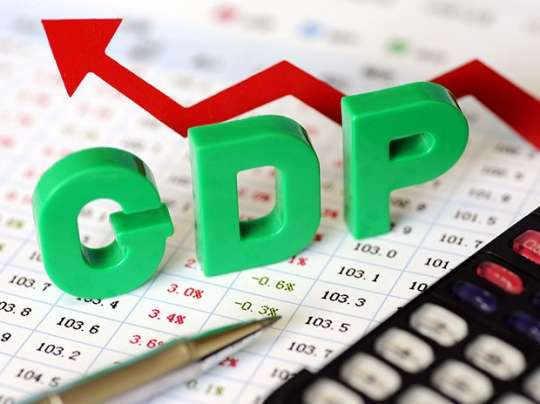Our Terms & Conditions | Our Privacy Policy
Ghana Targets Significant Boost in Tax Revenue to 18% of GDP – Ato Forson
Gross Domestic Product (GDP)
Ghana’s Finance Minister nominee, Cassiel Ato Forson, has set an ambitious goal of boosting the country’s tax revenue contribution to its Gross Domestic Product (GDP) from the current 13.8% to 18% in the medium term.
Speaking during his vetting before parliament on Monday, January 13, 2025, Dr. Forson emphasized the substantial untapped potential within Ghana’s tax system and expressed confidence that improvements could be made without the need for new taxes.
“We do not necessarily have to increase taxes to generate revenue,” Dr. Forson explained. “There is a need to improve compliance and address inefficiencies in the tax system.” While acknowledging the importance of tax reform, the nominee pointed out that the government’s target of achieving a 20% tax-to-GDP ratio by 2027 was overly ambitious given the current economic challenges.
A 2024 study, titled ‘Survey of the Ghanaian Tax System,’ which was conducted by the Ministry of Finance in collaboration with TaxDev researchers from the Institute for Fiscal Studies (UK), revealed that Ghana’s tax-to-GDP ratio, though improved from 2000, has shown limited progress since 2017. At 13.8%, the ratio is slightly below the global average for countries at similar income levels but aligns closely with the average for sub-Saharan African nations. In 2022, Ghana ranked 16th out of 28 lower-middle-income countries in terms of tax revenue performance.
The growth in domestic tax revenue since 2000 has been driven primarily by increases in corporate income tax, personal income tax, and value-added tax (VAT). These three categories now account for nearly 70% of total tax collections, a significant rise from 57% in 2000. However, growth from personal income tax and VAT has stagnated in recent years, and revenue from international trade has become a smaller contributor to total tax revenues. Taxes on imports, including VAT on imports, made up 33% of total tax revenues in 2022, down from 54% in 2000.
To address this issue, Dr. Forson outlined plans to work closely with the Ghana Revenue Authority (GRA) and the Ministry of Finance’s Tax Policy Unit to enhance compliance. His medium-term vision is to raise the tax-to-GDP ratio to between 16% and 18%, which he sees as a more achievable target in the context of the country’s current economic conditions.
Dr. Forson also discussed his intention to scrap what he referred to as “nuisance taxes,” such as the betting tax, which he argued brings in less than GH₵50 million annually. “Scrapping it will have negligible economic consequences but will address public dissatisfaction with such levies,” he added.
In line with the government’s broader fiscal strategy, the Medium-Term Revenue Strategy (MTRS) for 2024-2027 aims to reform the revenue system to foster economic growth while enhancing efficiency and equity. This strategy seeks to achieve an 18-20% tax-to-GDP ratio and a four percent non-tax-to-GDP ratio. The overarching goal is to increase the productivity of the revenue system, broaden the tax base, and ensure a fair distribution of the tax burden.
Dr. Forson also raised concerns about the current framework of tax exemptions, describing it as inefficient and inequitable. He criticized the previous administration’s One District One Factory (1D1F) initiative for its lack of transparency and accountability in granting tax exemptions. “If the government insists on granting exemptions under 1D1F, they should enshrine it in law to ensure equal opportunities for all,” he stated.
He argued that selective application of tax exemptions creates an uneven playing field, stressing that taxation must be fair and no individual or company should receive undue privileges at the expense of others.
In conclusion, Dr. Forson reaffirmed his commitment to balancing revenue mobilisation with economic growth. While scrapping certain taxes, he emphasized the need to address inefficiencies and enforce compliance to meet the government’s ambitious revenue targets. He expressed confidence that the proposed reforms would help restore public confidence in the tax system, boost economic productivity, and establish a foundation for sustainable fiscal management in Ghana.
Send your news stories to newsghana101@gmail.com
Follow News Ghana on Google News
Images are for reference only.Images and contents gathered automatic from google or 3rd party sources.All rights on the images and contents are with their legal original owners.



Comments are closed.